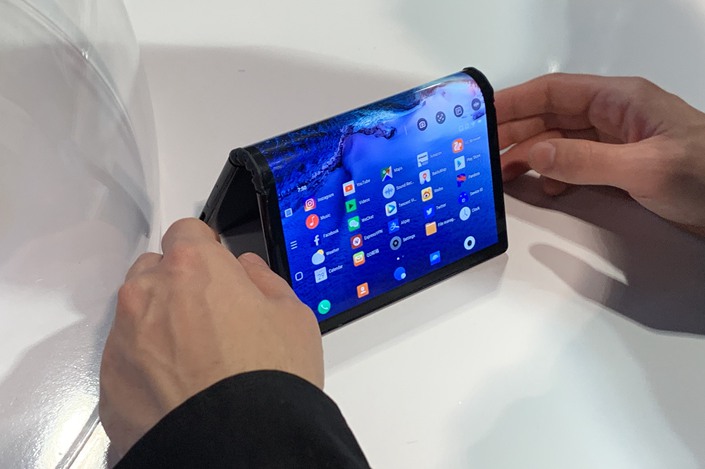Flexible-Screen Maker Royole Withdraws STAR Market IPO

Royole Corp. and sponsor Citic Securities ditched the flexible-display maker’s initial public offering (IPO) plan for Shanghai’s Nasdaq-like STAR Market, citing unresolved shareholder issues.
Money-losing Royole said it suspended the application as the company has “three types of shareholders” that may not comply with listing requirements. The company said the decision will not have a significant impact on normal production and operations.
The withdrawal represents another setback for a company that’s been trying without success for years to make a business splash with flexible mobile phones. High price tags, bulkiness, short battery life and a lack of supporting apps have long dogged foldable and flexible smartphone technology.
That’s reflected in Royole’s mounting losses. Royole lost 800 million yuan ($124 million) in 2018, 1.07 billion yuan in 2019 and 960 million yuan in the first six months of last year. Analysts do not expect its fortunes to turn around any time soon. Current production accounts for less than 20% of Royole’s capacity, and the company has sold only a sixth of the phones it has made.
Royole, established in 2012, has been one of most controversial startups in China. Its IPO plan raised questions about whether the STAR Market set its IPO threshold too low for tech startups.
“It would be too disruptive a demonstration for the industry if a company like Royole could get listed,” a professor on display technology told Caixin.
Royole filed its IPO application Dec. 31. It was one of 19 IPO candidates picked by the China Securities Regulatory Commission (CSRC) Jan. 31 for review.
Under the registration-based IPO mechanism introduced for the STAR Market in July 2019 and later applied at the ChiNext board of the Shenzhen bourse, IPO companies can skip the CSRC’s lengthy approval process, but the regulator is still choosing some candidates for on-site reviews. Such reviews are stringent, and many companies will have a hard time getting get IPOs cleared, a market participant said.
The three questionable types of shareholders that Royole cited include asset management plans, contractual private equity funds and trust plans. Under 2019 rules, China’s securities regulator banned those three types of shareholders from being the controlling shareholder or the largest shareholders of publicly listed companies.
Royole’s largest and controlling shareholder is co-founder Liu Zihong, who owns about 40% of the company. The next-biggest shareholders are Citic Capital with 6.05%, individual investor Wei Peng with 4.97%, and Shenzhen Venture Capital with 4.64%, according to the prospectus.
After closing a $300 million series F funding round in May with a valuation of $6 billion, the company has raised a total of $7 billion from investors including state-backed Shenzhen Capital Group Co. Ltd., sources told Caixin.
Royole launched its third-generation, fully flexible panel in March, but as with previous versions, the industry’s response has been tepid. The company’s flexible panels haven’t been adopted by any mainstream mobile phones, while its own flexible screen cell phone has delivered poor customer experience with a repair rate much higher than for rival products.
The company debuted its first smartphone prototype, the FlexPai, in 2018. The handset later drew criticism with many consumers reviewing the panels as more fragile than advertised. Critics accused Royole of rushing the product’s launch so it could be the first to put a foldable phone on the market. It priced the phone at a hefty 8,999 yuan ($1,393).
Royole planned to raise 14.4 billion yuan in the STAR Market listing, half of it to be spent on replenishing capital. The other half was earmarked for research and factory upgrades, and the company said it expected an increase in capacity to help to boost sales and lower prices, according to the prospectus.
Contact reporter Denise Jia (huijuanjia@caixin.com) and editor Bob Simison (bobsimison@caixin.com).
Download our app to receive breaking news alerts and read the news on the go.

- PODCAST
- MOST POPULAR






